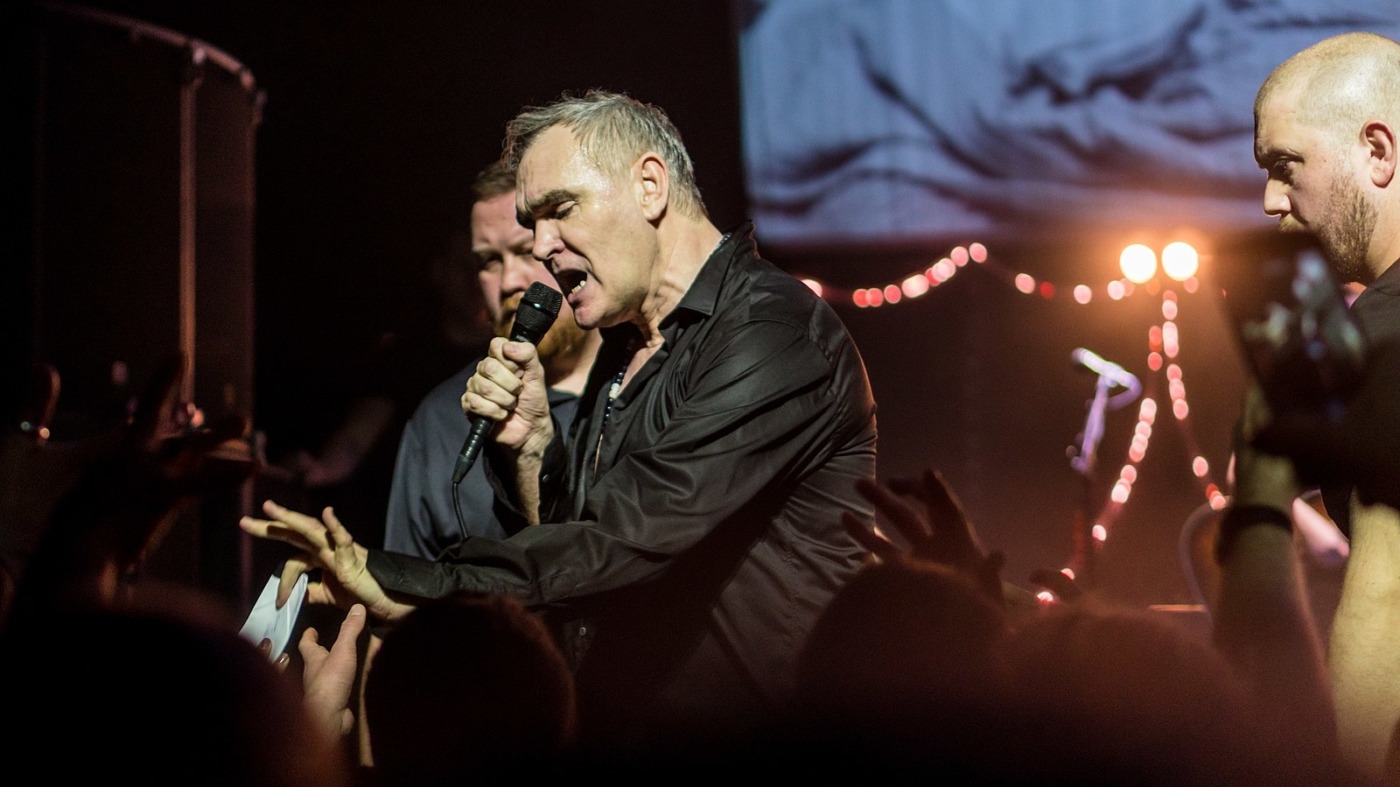Expecting your favourite musicians to have good politics will likely leave you disappointed
Many Smiths fans have a sentimental story about how they got into the band. For me, it’s that my mum was into them back in their heyday, her love of The Smiths being part of her broader distaste for the Establishment as a rebellious, CND marching teenager.
She still has a collection of the Smiths CDs, some of which I’ve adopted as my own. Around the age of 13, at a point when my mental health was deteriorating, I would play “That Joke Isn’t Funny Anymore” from Meat is Murder on repeat. An utterly miserable song (‘When you laugh about people who feel so very lonely/Their only desire is to die/Well, I’m afraid/It doesn’t make me smile’), there’s something oddly comforting about its desolation. Morrissey’s despairing vocal performance, in particular, is beautiful. Something about it feels incredibly personal, as though he’s singing to you, and only you.
Sentimental attachments aside, as a gay icon, staunch animal rights advocate, and child of Irish immigrants, on paper, Morrissey doesn’t seem like the first person you’d expect to get in bed with the far-right.
But here we are. It’s 2019 and Morrissey has been spotted wearing a badge supporting far-right political party For Britain during a New York gig — a party described by Nigel Farage as “Nazis and racists”. Led by Anne Marie Walters, For Britain spread the narrative that Islam is an evil force that is ‘destroying’ Europe. In doing so, they demonise Muslim immigrants (the majority of whom are people of colour, no matter how many times it’s said that ‘Islam isn’t a race’) and contribute to our country’s appalling rates of (rising) Islamophobic hate crime.
Morrissey doesn’t seem like the first person you’d expect to get in bed with the far-right
Morrissey has admittedly been making racist remarks for years – back in 2010, he called Chinese people a ‘subspecies’. But more recently, the mainstreaming of far-right ideology appears to have emboldened him. Within the current political climate, it’s difficult to dismiss his racist remarks as the irrelevant ramblings of an out-of-touch old man. Trump is POTUS, and Boris Johnson, a man who has described black people as “piccaninnies” and compared niqab wearers to bank robbers, our next PM.
For some, the For Britain badge was the last straw. For example, the owner of one Cardiff record store will no longer be stocking his records. But where does this leave your everyday Morrissey fan? Should we still be buying his music? Or even listening to it? To some, this might seem like a no-brainer. After all, why would you want to support someone who endorses such hateful views?
I struggle with this question as somebody who both abhors the far-right and recognises that the music industry is full of people with politics ranging from mildly ‘problematic’ to downright awful.
That isn’t to say that the industry is devoid of good people, or that the awful ones are all equally bad. But if you expect your favourite musicians to all have good politics, you’ll likely be disappointed at some point, particularly if you make a point of following them on social media, which has made the questionable political views of our favourite artists more visible than ever before.
It’s difficult not to notice the inconsistency in reactions to the ‘problematic’ behaviour of different artists
Azealia Banks is a great example of this. I love her music, but her social media presence is a trainwreck. So I don’t follow her accounts and just focus on her songs. Some may say I’m complicit in Banks’ various -isms by continuing to support her musical output, but if that’s the case, should I also boycott Nicki Minaj (who has collaborated with a rapper with a record of sexual offences)? Kanye West (who has spoken out in support of Trump)? What about the late Tupac, who was literally imprisoned for sexually abusing a fan, but still receives praise for some of his ‘pro-female’ lyrics?
Not only is the sheer prevalence of bad politics among popular musicians a major stumbling block. When it comes to the practice of any kind of politics of purity where music consumption is concerned, it’s difficult not to notice the inconsistency in reactions to the ‘problematic’ behaviour of different artists.
As Kemi Alemoru wrote in a piece about the racial politics of ‘cancel culture’ in the case of Banks, “the discussions I had before Azealia Banks’s second London show made it seem as though I’d decided to don a MAGA hat, or buy a bunch of R Kelly vinyl.” Why is that? What makes an outspokenly bigoted black woman somehow on the level of ‘problematic’ within our cultural consciousness as a sexual predator like Kelly?
Morrissey is, of course, a white man with his fair share of privileges. But he’s also long been someone that misfits can identify with, refusing to be pinned down to a sexuality category. He called himself a ‘prophet for the fourth gender’, long before ‘non-binary’ was common parlance. Which makes it all the more devastating that he uses his platform to endorse racism. But does it also make him easier for us to ‘cancel’?

Comments (2)
Did you have any cds of music your father liked ?